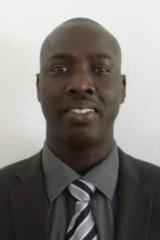Partners: Université Blaise Pascal – Institut Pascal
| |
Expertise & Current Research Activities
Université Blaise Pascal – Institut Pascal
- Shaping, characterization and optimization of phthalocyanine thin films as sensitive layer for gas sensing structures
- Investigation on the potentialities of organic and inorganic semiconductors as sensitive material in chemical microsensors
- Interpretation and modelling of gas/materials interaction processes
- Investigations and characterizations of organic and inorganic materials for the development of integrated filtering layers on sensors
- Implementation of nanocarbonaceous materials as sensitive layer or efficient filter for selective gas monitoring
- Functionalization of nanocarbonaceous materials for the development of original sensing devices
- Development of high–performance gas sensor microsystems
- Coordinator of the national project on the elaboration of gas sensing devices based on semiconductors for the metrology of gaseous atmospheric pollution (POLL–CAP)
- Coordinator of the national project on sensing composite structure–based microsystem devoted to the selective measurement of benzene, toluene and xylenes (CAP–BTX)
- Elaboration of organic molecular semiconductors (metallophthalocyanines) and inorganic semiconductors (indium Phosphide, carbon nanomaterials) thin films as sensitive element of gas sensors
- Implementation and functionalization of nanocarbonaceous materials as sensitive films for gas sensors application
- Electrical characterizations of semiconductors–based gas sensors
- Implementation and functionalization of nanocarbonaceous materials as sensitive films for gas sensor application
- Investigation and characterization of nanocarbons as chemical filters for selective removal of pollutants
- Characterization of chemical and physical gas/material interaction processes
- Development and optimization of resistive structures, insulator–semiconductor and metal–semiconductor heterojunctions
- Investigations on new sensor systems based on a multi–transducer approach (conductometric, QCM, heterojunctions) for identification of gas/material involved and for original sensing devices
- Development of relevant working methodologies for sensor enhancement
- Calibration of sensors towards low gas concentrations
- Development of virtual instruments dedicated to measurement under well–controlled atmospheres
- Development of microsensors for air quality control
Institut Pascal – Laboratory PHOTON–Microsystemes Capteurs Chimiques
- Preparation and characterization of carbon nanomaterials (examples of CNTs) dispersion
- Covalent and non–covalent functionalisation of carbon nanomaterials
- Elaboration and characterization of Carbon nanomaterials–hybrids materials
- Elaboration of CNTs–based sensors dedicated to atmospheric pollutants (NO2, O3 and BTX)
- Preparation of sensing material based on III–V semiconductors (InP)
- Experiments under low gas concentration range in artificial and real atmophere
- Development and calibration of microsensor
- Investigations on nanocarbons as sensitive materials
- Characterization of chemical and physical gas/materials interaction processes
- Development and optimization of resistive structures and metal–semiconductor heterojunctions for gas sensor applications
- Design of new sensing devices combining different transduction modes for understanding the gas/material interactions
- Development of the dispersion methods for the elaboration of low cost sensors devices
Université Blaise Pascal – Institut Pascal
- Deposition systems for the realization of metallic, semiconducting and insulating nanometric thin films (thermal evaporation, drop casting, spin coatings)
- Temperature controlled oven for the post–deposition thermal treatments of thin layers (under vacuum, neutral or reducing atmospheres)
- Plateform of electrical characterizations (Current–voltage and Capacitance–voltage versus temperature, Hall effect measurement, DLTS,
Doping profile measurements, Conductivity measurement)
- QCM systems for mass measurements of materials under gas
- 5 automated experimental setups dedicated to tests of sensors under low gas concentrations (ppb or ppm level) controlled by LabVIEW software
- Commercial ozone and nitrogen oxides analyzers for the real–time monitoring of gas concentrations downstream the sensor
(establishment of calibration curves)
Institut Pascal – Laboratory PHOTON–Microsystemes Capteurs Chimiques
- Electrical characterisation (2–points system, 4–points system)
- Dispersion realisation (ultrasonic Bath and solution processing)
- Current–voltage characterisation (I (V) characterisation)
- C(V) characterisation
- Temperature dependent I (V) characterisation
- Oven (annealing under inert gas or atmospheric condition)
- Gas analysers
- Deposition Chambers (thin film realisation)
- Realisation of Schottky Diode
- Thin film deposition devices (organic semiconductor, inorganic material, metal deposition)
- Drop casting deposition methods
- Test bench for gas sensing experiment (NO2, O3, BTX etc.)

| BRUNET Jerome
Lab.: Institut Pascal
Org.: Université Blaise Pascal – Institut Pascal
Country: France
Tel. +33–473407247 - Fax +33–473407340
e-Mail brunet@univ–bpclermont.fr Web http://ip.univ–bpclermont.fr/
|

| PAULY Alain
Lab.: Institut Pascal
Org.: Université Blaise Pascal – Institut Pascal
Country: France
Tel. +33–473407260 - Fax +33–473407340
e-Mail pauly@univ–bpclermont.fr Web http://ip.univ–bpclermont.fr/
|

| NDIAYE Amadou
Lab.: PHOTON–Microsystemes Capteurs Chimiques
Org.: Institut Pascal
Country: France
Tel. +33–473407238 - Fax +33–473407340
e-Mail amalat2005@yahoo.fr Web
|
| |
| 
|